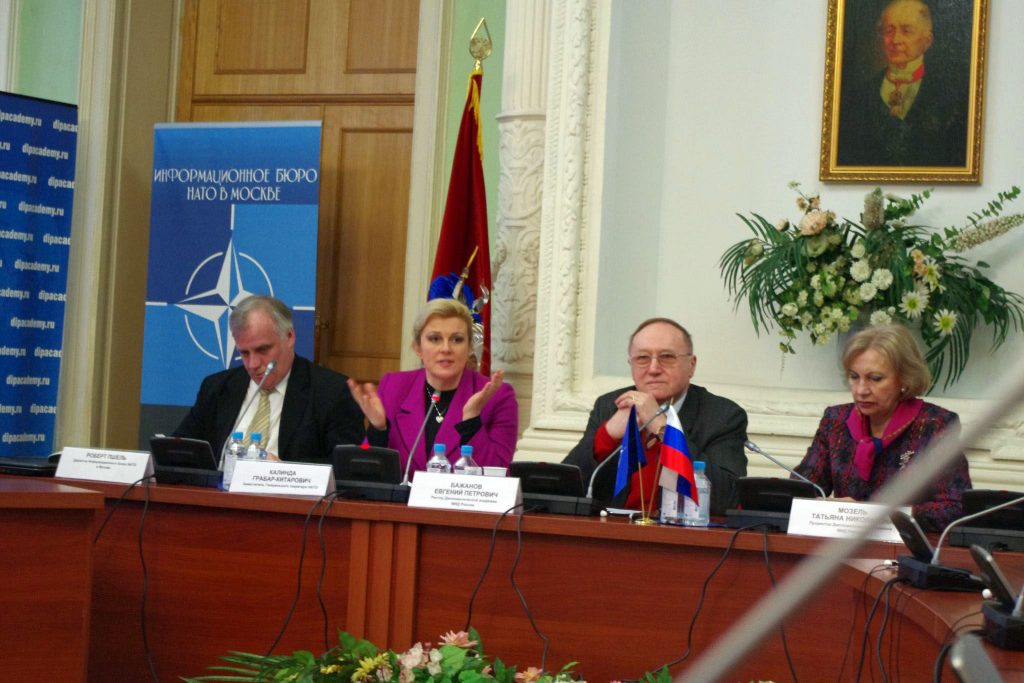
From NATO: A roundtable discussion on the prospects for NATO-Russia partnership was organised on 20 February by the NATO Information Office (NIO) in Moscow to mark the 12th anniversary of the NIO’s inauguration in 2001. Representatives of the Russian foreign ministry, diplomats from the German and US Embassies, and a number of prominent Russian experts and journalists discussed common interests, new ideas and the need for political will.
Discussion was opened by NATO’s Assistant Secretary General for Public Diplomacy Ambassador Kolinda Grabar via a video link from NATO Headquarters in Brussels. She described NATO’s current priorities and preoccupations and reviewed main achievements of cooperation in the NATO-Russia Council (NRC) framework.
“Those who pretend that NATO-Russia cooperation provides only little substance and doubtful mutual benefits are far from reality,” said Ambassador Grabar. “We should put more efforts into a better publicity for our common projects…and to [hold] more open discussions…to help us better understand each other’s concerns,” she added.
The debate which followed covered a wide range of issues related to NATO-Russia relations. Ongoing cooperation in Afghanistan, including transit arrangements and joint training of counter-narcotics experts from the region, was an important focus of discussions. Russian colleagues were also interested in learning more about the Alliance’s plans following the end of the NATO-led operation in Afghanistan at the end of 2014.
Ambassador Grabar shared her impressions from her recent visit to Afghanistan, pointing out that while nobody can predict what the future holds, the reality in the country looks significantly better than what media depict.
Russian participants also wanted to know more about NATO’s Smart Defence projects which are seeking to develop multinational approaches to generating military capabilities through pooling and sharing, prioritisation and specialisation, to ensure that resources are spent wisely in times of economic austerity. Similarly, interest was shown in the Connected Forces Initiative, which aims to help maintain NATO’s readiness and combat effectiveness through expanded education and training, increased exercises and the better use of technology.
Participants also exchanged ideas on the potential for NATO and Russia to work together to address emerging security threats, such as piracy and cyber attacks.
Despite ongoing efforts to advertise achievements of the NRC, speakers argued for a more comprehensive approach in explaining NATO to the Russian public and presenting the real, contemporary image of Russia in allied countries. (photo: NATO)
Image: nato%203%201%2013%20Kolinda%20Moscow.jpg
